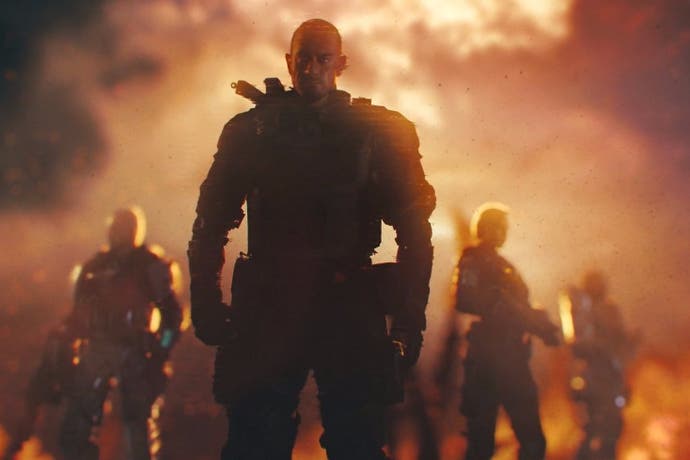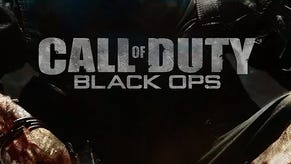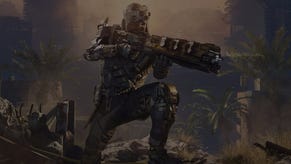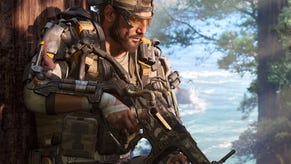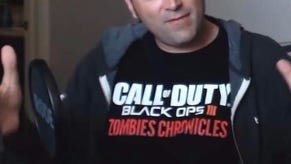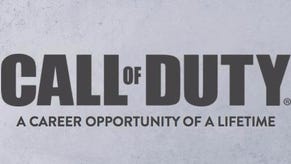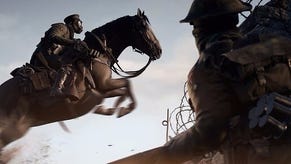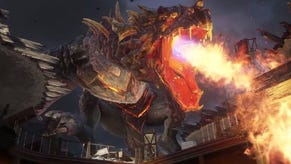You can play Black Ops 3 backwards, so we did
Benjamin Buttonmashing.
SPOILER ALERT: This is an article about playing the Call of Duty: Black Ops 3 campaign backwards, so expect serious spoilers from the start.
I like the idea of playing Call of Duty backwards. You ease in with a climactic gunfight and maybe even a hectic race through a burning installation of some kind. You travel onwards, ducking endless monologuing hypervillains and navigating artfully scattered thickets of betrayal until you eventually get to meet the people who have just betrayed you. And then, at the very last moment, as the wreckage thins out and the music starts to suggest impending doom, somebody finally teaches you how to crouch. Game over.
For years I had this dream. And then Black Ops 3 came along and granted it. An entire campaign unlocked from the start, its chapters playable in any order. Why not dive in, eh? Why not dive in right at the end - headed for Zurich, apparently, a metropolis in flames and besieged by killer robots. Zurich! Sweet Zurich! One of only 25 cities, I have since discovered by reading Wikipedia, to make it onto Monocle's coveted (and rather oddly titled) list of the best cities in the world to "make a base within". Clearly a place in need of rescuing.
I'll tell you somebody who has made a base in Zurich, anyway: the Coalescence Corporation, a bunch of biotech nutters who appear to be the game's baddies - a concept I swifty deduce since this is the final mission and we're storming their offices, working our way in across the broken streets and through a "parking structure", which I believe is top-tier Clancy-speak for a multi-story carpark.
It's fun, this: popping tinfoil robots' heads off and chattering about somebody called Hendricks, who we all hate and who - fleetingly - appears to be the ultimate villain in this twisty-turny affair. There's a fight against a spider-tank of some kind, a lot of chatter about drones, and although the scripted chaos, as the term suggests, falls rather flat what with cars obligingly sliding through walls every few seconds before coming to rest perfectly on their marks, it's a nice, if ragged, introduction to the joys ahead.
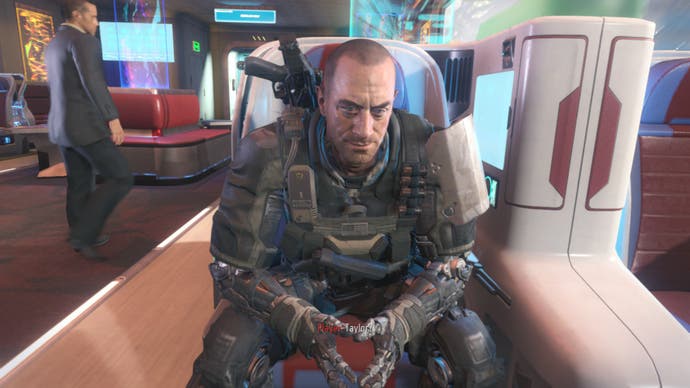
I'd always assumed that story's a bit of an afterthought in COD games, incidentally. I was clearly wrong. Black Ops 3 can't shut up about it. This is a game that takes story very seriously, but I think the team at Treyarch needs to work a little harder on theme. The theme of Black Ops 3 appears to be that combining cybernetically-controlled super soldiers with rampant paranoid government AI is probably a bad idea. Guys, you can do better than that.
Adding a little frisson to this staggering thesis are trappings that no modern shooter would be without: cleverly rendered graphical and audio glitches that suggest you're going mad or breaking down - Black Ops' are accompanied, rather weirdly, by what initially appear to be numinous glimpses of a parrot, but which turn out to be numinous glimpses of a crow or raven - and sections where you leave the corporeal world behind entirely and explore a sort of shadowy, skittering netherrealm. Black Ops opts for a frozen forest in this regard, a place where branches burst out of the ground to funnel you, limbs twisting together like dendrites, and where Hendricks, who I'm here to kill, turns up alongside a man called Taylor, whom I gather I may already have killed.
Towards the end of the final mission, things grow a little sombre, and then a little fragmented. There's even a hint - rather dispiriting when you're only an hour into the adventure - that the whole thing may turn out to be fantasy anyway. No matter. I've killed the baddy - at least I think I have? Now I have to find out what he did that was so terrible in the first place.
After Zurich, and headed backwards, it's off to Egypt. Hendricks is alive again - and not yet evil by the sounds of things - and we're after Taylor, who's also still alive and still pretty evil from what I'm being told by Hendricks. The penultimate level brings with it a sense of deja vu that I think comes from it being a sort of portmanteau affair formed of The Raid and Spec Ops: The Line. It's in Egypt that I discover that I'm part robot. This certainly explains the graphical glitches and all the chatter about being infected, and it sheds a dim light on the fact that I have a mechanical hand and can hack computers by just waving my fingers at them imperiously.
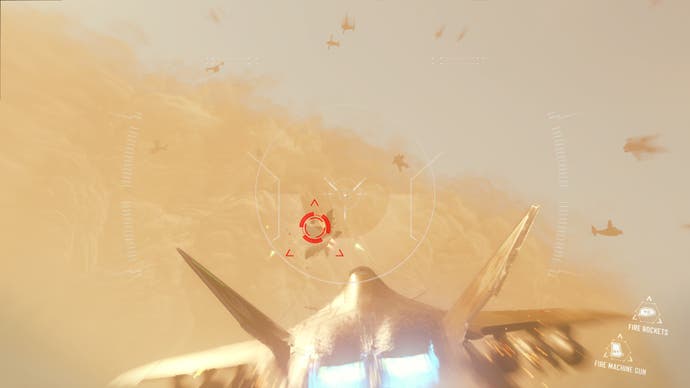
There are problems with this development, however, and they cut straight to the heart of the story that I think Black Ops 3 is trying to tell. Namely, despite cybernetic gimmickry, it's very hard to make the player of a Call of Duty game truly feel like a super soldier, because for the last few years the campaigns have made you into what amounts to a super soldier anyway, able to shrug off bullet wounds after crouching behind a crate for a few seconds, able to take down giant mechs and gunships with a few special weapons and a couple of restarts. We're well into the Late Brosnan era, in other words, and one of the side-effects of such endless escalation is diminishing returns when it comes to feeling truly powerful.
What's next? After killing Taylor - actually, he sort of kills himself, but I definitely lend him a hand - it's onto another Egypt level in which I chase Taylor to his hideout. I'm going to gloss over this part because it's an unholy attempt to combine a flying level with an escort mission level and - at times - an underwater level. In other words, it's a Frankenstein's monster cobbled together out of all of action gaming's unholiest gimmicks. Also, having killed Taylor, tracking him down and cornering him feels kind of like overkill. Such is the business of playing a game in reverse.
The next level is much better, anyway. Or rather, it's the one that Treyarch probably left to the in-house media studies graduate to design. Midway through some hectic set-piece fighting another one of those spider tanks, I end up frying the brain of one of the cybernetic super soldiers who seem to keep turning up everywhere. And then I travel inside her mind, right, to witness a series of World War 2 flashbacks, one of which involves yet another sci-fi spider tank holding court in the middle of an old church. The series is revisiting its roots and you're simultaneously trapped inside a dying brain! It's still COD, though, so I still have to shoot my way out to get to the next bit.
I am warming to Black Ops 3 by the following mission, which focuses on interrogating a man who's survived something awful that I've been hearing about intermittently in cut-scenes, but that then scales to defending an old railway station from waves of robot invaders and taking to the streets to blow something up using a cool new gun that shoots explosive spikes. There is real beauty to some of this staging: in the detailing, say, which sees underground station staircases filled with flickering candles, and in the thoughtfulness the designers have brought to the role of the player, ensuring that no matter how cinematic the madness gets, you'll still have three or four people you can shoot at any time, often at a variety of exciting elevations.
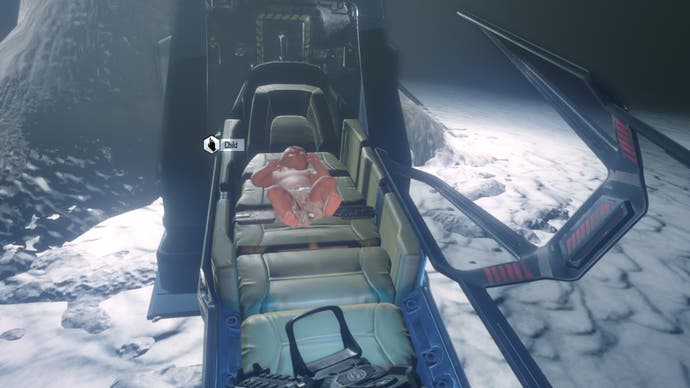
It's not all good, though. I think Black Ops 3 suffers from something you could call the Netflix Problem. It's certainly my Netflix problem, anyway, and it comes down to the fact that since Netflix monitors how much of a film you've watched, I've recently started to notice that I'm a habitual watcher of 70 per cent of most movies, and 70 per cent only. That 70 per cent mark is important because that generally signals the turning point from act 2 to act 3, heralding the moment in which the viewer starts to realise that a film's last chance to truly surprise them has passed, and that it's all over bar the speeches and the teary sacrifices and the really big explosions.
In making Black Ops 3 a far more generous game than its predecessors - and because you can now choose to skip forward (or backward) - each level now has its own 70 per cent mark, as far as I'm concerned. It really does seem that there's always one objective too many per mission, and the objective in question often involves a spider tank that you have to take down by shooting it with bullets and then shooting it with a rocket launcher. The game doesn't know when to quit, and the price for this largesse is pacing.
After Egypt, we're off to Singapore for a few missions, and I'm not particularly surprised because everyone I met in Egypt was talking about how badly things had gone in Singapore, and it was very unlikely that the game was going to let me miss that.
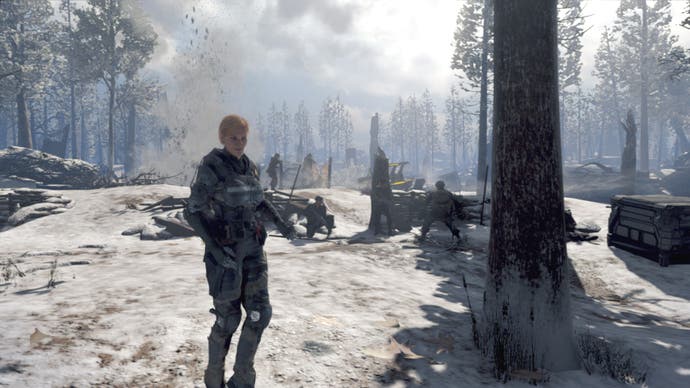
The Singapore missions initially seem like an exercise in box-ticking. There is a horrible militia loose on the streets, which means that the developers can throw in shocking scenes of people being strung up, set on fire, strung up and set on fire, or just tipped over balconies and exploding, head first, against the tarmac below. Tiresome headline-grasping splatter aside, however, this section of the game is actually brilliant. I have a new gun that allows me to take people out with one shot almost silently, and the level design suddenly realises that there's more to life than chaos and spectacle, and lets me loose in a tangle of streets to mop up roving bands of goons while keeping an eye on snipers on distant balconies. Hendricks and I are a team here - I am starting to feel terrible about having killed him in the distant past/future - and the game hits a real groove
I don't even mind that it continues in that groove roughly 30 per cent longer than it really needs to. What does it matter when Hendricks is still alive, when Taylor is still alive, when someone named Kane who everybody briefly thought was a baddy - even when I, playing backwards, always knew that she was ultimately a goody - is still alive? We're all alive, and after Singapore, we're off to the tutorial, where I learn to get to grips with a whole load of neat cybernetic super-soldier powers like wall-running, hacking drones and setting people on fire that I mostly discovered by accident over the last few hours anyway. Following that, I head to the conclusion by playing through the opening mission. I'm 100 per cent human again! So is Hendricks! Taylor's turned up for bantz! There are people sneaking around military bases and other people being waterboarded, which means, in COD terms, that it's all very comforting. Finally, when I'm starting to worry about how the developers are ever going to tie this whole thing together in a satisfying fashion, a piece of steel framing falls down in front of me and it happens: a tool-tip pops up and I learn how to crouch. Job done.
This whole playing it backwards business is pretty odd. The trite thing to say would be that it doesn't make much difference in a game like Black Ops 3, but that's not remotely fair: it actually does. Shorn a little of the distracting details of the plot, I start to grasp something very strange about the job that Treyarch's been lumbered with. I start to realise that the studio's experimental narrative impulses - even as thinly conceived as they are - are completely at odds with the game's fierce mechanical insistence on unwavering certainties. Or rather, the story has arthouse impulses, while the gameplay remains relentlessly conservative. What does it mean to be human? is the echoey, rather empty-headed philosophical question that the campaign frequently pretends to be asking, but games tell their true stories outside of their cut-scenes, and Black Ops 3's can actually be summed up in just two words: push forward. Keep moving! Past the next firefight, around the next spider-tank encounter, over the next frantic glimpse of de-contextualised atrocities and through the dreamy bit where everything gets weird, but where you still get to keep shooting people. This is a game about questioning authority - your allies, the CIA, the big tech firms who secretly rule everything - and it's told through the medium of doggedly following a waypoint marker.
And it's best summed up by something Taylor - I think it was Taylor - said to me in Cairo. I think it was Cairo. "You know everything!" he laughed. "You just don't know it yet."
Maybe Taylor was playing the game backwards too?
